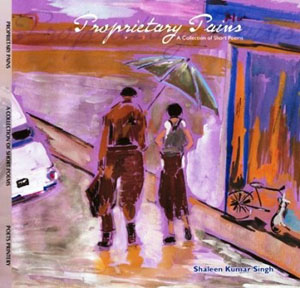Dec 22, 2025
Dec 22, 2025
 Proprietary Pains (PP) is haunting!The way the old Spanish or the soaring Gothic castles are still haunting for the contemporary tourists!Or, the mystical vast Russian steppes in Turgenev or Chekov - running down to the very rims of the infinity in a rugged series against a clear and somber blue sky and seen fresh from new eyes on a sun-lit and silent morning from a moving wagon - are for the post-modern readers. Or, the majestic Brahamputra of Assam, flowing down across the heart of an ancient land, is for the tired travellers. Or, the fleeting ruins of a Rajasthani haveli are for the newly-arrived foreginers as seen in the quivering haze of the afternoon sun of hot May. Things that refuse to fade from your mind already exposed to info-overload of media-society.
Proprietary Pains (PP) is haunting!The way the old Spanish or the soaring Gothic castles are still haunting for the contemporary tourists!Or, the mystical vast Russian steppes in Turgenev or Chekov - running down to the very rims of the infinity in a rugged series against a clear and somber blue sky and seen fresh from new eyes on a sun-lit and silent morning from a moving wagon - are for the post-modern readers. Or, the majestic Brahamputra of Assam, flowing down across the heart of an ancient land, is for the tired travellers. Or, the fleeting ruins of a Rajasthani haveli are for the newly-arrived foreginers as seen in the quivering haze of the afternoon sun of hot May. Things that refuse to fade from your mind already exposed to info-overload of media-society.
02-Dec-2011
More by : Dr. Sunil Sharma